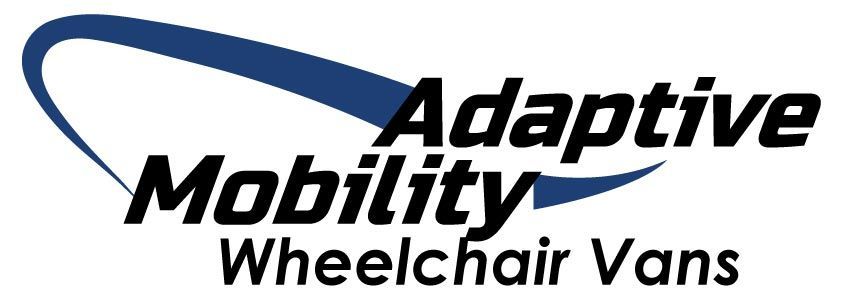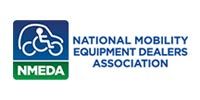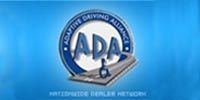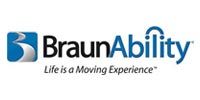Resources
Adaptive Mobility Equipment Inc.
Adaptive Mobility Equipment Is Your NMEDA Quality Assured Dealer
We are your local BraunAbility dealer, specializing in Braun lowered-floor vans. BraunAbility has been a leader in accessible vehicles for decades, offering reliable conversions for models like the Toyota Sienna, Honda Odyssey, Dodge Caravan, and Chrysler Town & Country—with both power and manual side-entry or rear-entry options available.
Adaptive Mobility proudly supports veterans with dedicated resources, including a FREE Veterans Maintenance Program. Plus, we've also added a Video Library to our website to keep you informed. Be sure to check back often to see what's new!
Veterans Maintenance Program Details
AME Veterans Resources
Grants Through the Veterans Association for Disabled Veterans
Get help with a disabled veterans grant toward the sale price or conversion of a handicap-accessible minivan. This grant is available for veterans with service-related disabilities, including:
- Loss or permanent loss of use of one or both feet
- Loss or permanent loss of use of one or both hands
- Permanent loss or impairment of vision in both eyes
- Ankylosis (immobility) of one or both knees or hips
There is a one-time Disabled Veterans Grant payment from the Veterans Association toward the purchase of a vehicle chassis and/or adaptive equipment. The Veterans Association will also cover adaptive equipment for repair, replacement, or reinstallation required due to disability, and for the safe operation of a vehicle purchased with VA assistance.
Effective August 2020, the amount granted to service-connected veterans under the one-time VA Auto Grant Program increased to $21,488.22. The amount a veteran receives depends on the date the sale was executed and submitted for reimbursement—not the date the VA Form 4502 application was approved.
Veterans who wish to convert an existing vehicle may also qualify for an Adaptive Equipment Grant. Adaptive equipment includes, but is not limited to, power steering, power brakes, power windows, power seats, and specialized equipment necessary to assist the eligible person in entering and exiting the vehicle. Contact your local VA medical center’s Prosthetic Department before purchasing any equipment.
The adaptive equipment grant may be paid more than once and may be paid to either the seller or the veteran.
Disabled Veterans Loan Program
Loans for disabled veterans are available through various outlets. It is recommended to search for loan programs based on your specific disability.
You may also find loans to help pay for adapted vehicles by searching for funding based on your disability rather than focusing solely on veterans benefits. Visit our Wheelchair Van Loans section to explore additional options.
We are always working to expand funding opportunities for disabled individuals to help cover the cost of a handicap-accessible minivan. If you know of other disability grant or loan programs for disabled veterans, please let us know.
Automobile Adaptive Equipment Program
The Automobile Adaptive Equipment (AAE) Program enables physically challenged individuals to enter, exit, and/or operate a motor vehicle. The VA provides necessary equipment such as:
- Platform wheelchair lifts
- Under Vehicle Lifts (ULV)
- Power door openers
- Lowered floors / raised roofs
- Raised doors
- Hand controls
- Left-foot gas pedals
- Reduced-effort and zero-effort steering and braking
- Air conditioning
- Digital driving systems
Eligibility
Veterans are eligible if they are service-connected for:
- Loss or loss of use of one or both feet or hands
- Ankylosis of one or both knees or hips
- Permanent impairment of vision in both eyes with central acuity of 20/200
Non-service-connected (NSC) veterans are eligible only for equipment/modifications that allow ingress and egress from a vehicle.
Note: Eligible service-connected veterans who are non-drivers are not eligible for reimbursement for operational equipment.
Required Documentation to VBA
Submit the following to the VBA:
- Completed VA Form 10-1394, “Application for Adaptive Equipment”
- Copy of valid driver’s license
- Bill of sale, invoice, lease agreement, or registration form
- Window sticker
If the window sticker is not available:
- Inspect and document the vehicle and items
OR
- Use the Edmunds Comparable Vehicle Listing Guide
OR
- Provide an invoice or bill of sale that substantiates the adaptive equipment
Also required:
- Proof of ownership (vehicle title)
- Proof of disposal of a previously owned vehicle
- If sales tax was paid, adjust VA Form 10-1394 to reimburse repairs (marked PAID and include a certification statement signed by the vendor)
Used Vehicles
Reimbursement is prorated by reducing the standard reimbursable amount for similar items by 10% per year.
Maximum deduction is 90% for vehicles 10 years or older (residual value of 10%).
Leased Vehicles
Same guidelines apply as for purchased vehicles.
Lease must be in the veteran’s name, and the veteran must be responsible for repairs and maintenance.
Cost limitations will not exceed allowable reimbursable amounts.
Conversions
- Mini-Van: Reimbursement will be equal to or less than the average cost of a conventional van modification, plus 25% (service-connected only). VA will reimburse transportation/delivery costs.
- Full-Size Van: Considered a comfort conversion; reimbursement should not exceed the cost of a conventional van conversion.
- Pick-Up Trucks: Modified space is about half that of a mini-van; reimbursement should not exceed mini-van conversion costs.
- Motor Homes: All modifications must be pre-authorized. Only VA-approved add-on equipment may be authorized. Reimbursement amounts for adaptive equipment will not exceed those established for similar items in vans. VA is not responsible for removal or modification of convenience items (e.g., cabinets, stoves, showers).
Repairs
- Routine service (e.g., brake shoes, drums, pads, fluid refills) is not considered a repair
- Only major components (e.g., transmission, power steering system) are eligible
- Maximum reimbursement is based on the certified invoice
- Parts and labor costs must align with the current Mitchell Mechanical Parts and Labor Estimating Guide
- Towing is generally not authorized
Exceptions to the Two-Vehicle Rule (Four-Year Period)
Normally, only two vehicles are allowed within a four-year period. Exceptions include:
- Theft
- Fire
- Accident
- Legal action
- Costly repairs
- Changes in medical condition requiring a different vehicle type
Required Documentation to Remove a Vehicle of Record
Important: Vehicles may not be sold or transferred to family members, household residents, or businesses owned by the veteran.
Required documentation:
- Proof of trade-in
- Proof of sale
- Proof of disposal (e.g., total loss due to accident, act of God, fire, theft)
How to Apply
Please contact your local Paralyzed Veterans of America (PVA) National Service Officer for assistance with the application.
Information provided above was sourced from "The Newsletter of the New England Chapter of Paralyzed Veterans of America."



